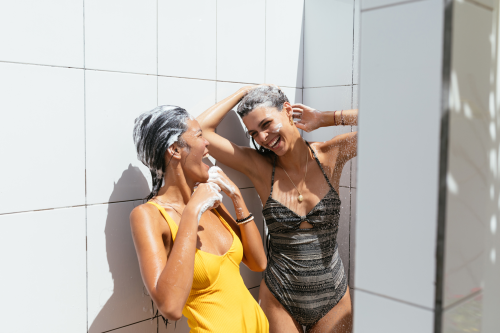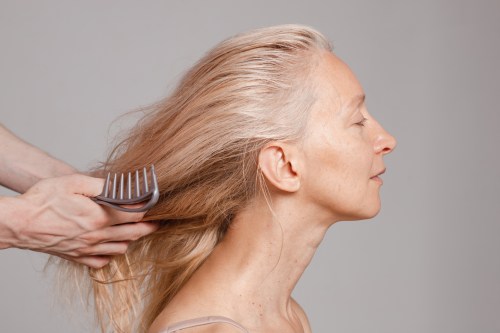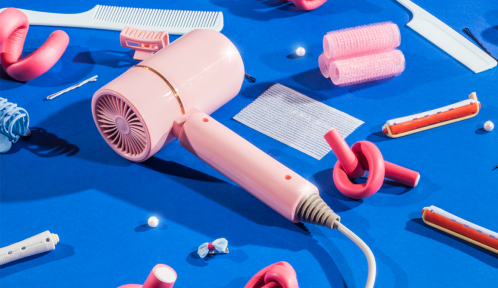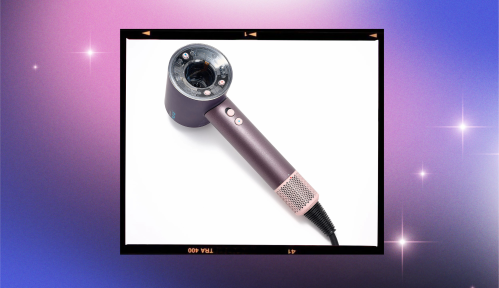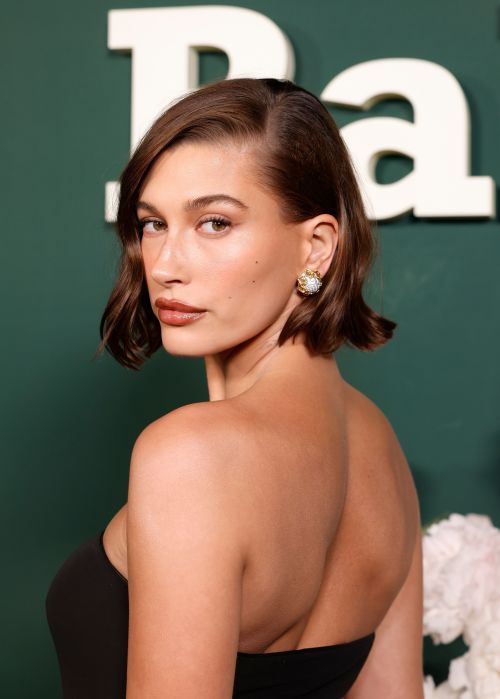The way that we take care of our hair is changing—and that’s a good thing
Beauty pros share how hair care is changing during the COVID-19 pandemic and how we're going to continue to see it transform in the days to come.

Once a jokey way to turn down plans, “I can’t tonight, I’m washing my hair” has suddenly become… a perfectly legitimate excuse.
In our lives B.C.— before COVID-19—any sort of hair maintenance that involved getting our strands wet was simply a means to an end, a necessary evil to wick away the post-workout sweat or rehab dry shampoo-ed lengths. Naturally, we did this as speedily and efficiently as possible, because it was typically a prelude to the loathsome task of blowdrying and styling. We had places to go. People to see. Now? Not so much.
With more time on our hands, we’re coating them with conditioner. A recent report from the consumer trends agency Spate found that while searches for hair styles and heat tools dropped by 158,000 from February 16th through March 29th, searches for hair treatments skyrocketed over the same period, with time-intensive add-ons like hair masks increasing by 18,000. It seems that in our new lives on lockdown, hair care is stepping in as self care.
“Once you’ve gotten your head completely drenched in shampoo, take your palms and apply light pressure in the space between your temples and occipital bone. It’s like a brain melt.” —Ramon Garcia
“Normally, I’d put in a deep conditioner and just wash it out immediately,” says Dianna Cohen, the New York City-based founder and CEO of hair-care brand Crown Affair. (Haircare founders, they’re just like us — totally ignoring directions in favor of expediency!) “Now, I’m more mindful in the shower. I’m appreciating the slowness of these rituals in a way that I couldn’t before.” It’s amazing what happens when you aren’t perpetually running fifteen minutes late to something—because you aren’t running anywhere at all.
With his clients unable to visit him at his salon, Los Angeles-based stylist Ramon Garcia is encouraging them to tap into this slowness and do less with their hair (”let the flat iron collect some dust,” he says), but do better. And that includes mastering the art of the shampoo scalp massage — the unequivocal, no-debate, hands-down best part of going to the salon. Garcia says to start applying your pre-emulsified shampoo at the back of your head (your hair there is oilier and stronger than the front) and then gently apply pressure with the pads of all your fingertips moving from the occipital bone towards the temples, working in the shampoo as you massage the product in. “Once you’ve gotten your head completely drenched in shampoo,” he adds, “take your palms and apply light pressure in the space between your temples and occipital bone. It’s like a brain melt.”
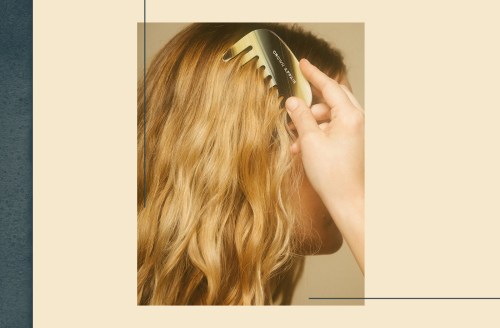
This focus on caring for hair versus “doing” it coincides with a boom of brands meant precisely for that—a marked departure from the polished, salon-inspired lines that feel increasingly out of touch for the times. Authentic Beauty Concept, for which Garcia is an ambassador, launched last month with formulas featuring extra-potent steam-distilled natural extracts that are designed to enhance your hair’s natural state, not transform it into something else entirely. Drunk Elephant, which debuted its much-anticipated hair-care line in February, touts formulas geared towards scalp care as much as hair care (the standout is, unsurprisingly, a scalp scrub that founder Tiffany Masterson loves so much, she uses it on her body.)
“Detangling hair is like gua sha-ing your face. It’s stimulating the scalp and releasing tension.” —Dianna Cohen
Perhaps Cohen’s Crown Affair speaks to the zeitgeist most directly, though. Debuted in January, the tightly edited collection launched with two combs, a brush, an oil, and a towel—not shampoo or conditioner. “Taking care of your hair should be a celebration,” notes Cohen, who sees the collection as a way to make at-home hair rituals more pleasurable and less of a chore. She keeps the handled comb, hand-carved in Switzerland from plant cellulose, in the shower and uses it to apply her conditioners and masks. “For me, detangling hair is like gua sha-ing your face. It’s stimulating the scalp and releasing tension,” she says.
There is, of course, a great possibility that once our calendars fill back up and meetings and drink dates once again happen IRL and not over Zoom, we’ll push the deep conditioner back to that hard-to-reach section of shower shelf and untangle the blowdryer and styling iron so as to look a little more, er, presentable. But there’s also a great possibility that our old ways just won’t do. In Garcia’s opinion, what constitutes “presentable” was already shifting. ”There’s not a certain way that hair should look anymore,” he says. “I think we’re all really reevaluating right now,” adds Cohen. “And we’re looking at the effect that our routines have on our wellbeing.” That kind of self-reflection is hard to unsee—even in a shower steam-clouded mirror.
Sign Up for Our Daily Newsletter
Get all the latest in wellness, trends, food, fitness, beauty, and more delivered right to your inbox.
Got it, you've been added to our email list.
